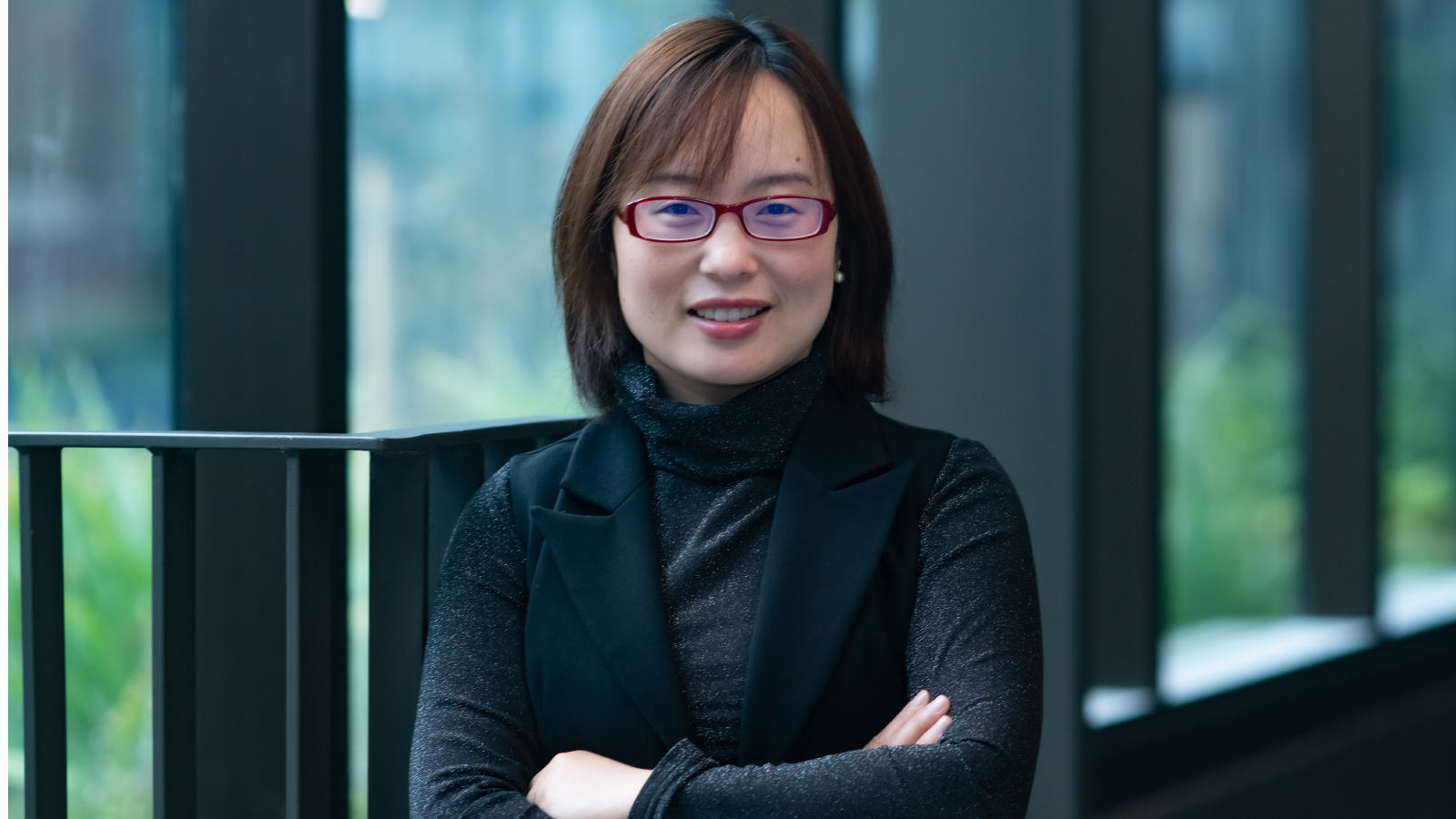
“Becoming a professor shows all my students that this is something they can also achieve.
"It definitely came a bit sooner than I expected, and I feel like I can say to PhD students and junior researchers, you can achieve this even faster than me in the future.”
Computational intelligence expert Bing is involved with several key undergraduate and postgraduate programmes in the School of Engineering and Computer Science (ECS).
She moved to New Zealand to pursue her PhD at Te Herenga Waka—Victoria University of Wellington in 2010, and says the supportive environment she found here allowed her research to flourish.
“We have a great culture here—if you have an issue, so many people want to help you find a solution. When I first arrived, other students and staff members were so helpful and supportive.
“The environment in New Zealand is excellent for doing research. Academic life here is very different—you can just focus on the research. If I had gone elsewhere, I would not have achieved what I have here.”
Bing has always had a passion for research, and for the ‘hard skills’ that come with the programming side of her job. After completing her PhD and becoming a member of the ECS’s teaching staff, she discovered she also had a passion for teaching.
“When you teach, it reinforces your research. Students ask questions from a completely different point of view and have lots of new ideas. They give you a deeper understanding of a topic. And I find a lot of my research students through teaching!”
Bing speaks highly, and with great enthusiasm, about the achievements of her students. It is clear she feels deeply invested in their academic journeys, whether she is teaching them in a classroom or supervising their research.
“When you’re undertaking research, you can’t guarantee you’ll have a good output. Every PhD student, no matter how successful they are, will experience ups and downs. I understand when students are stressed because their research is not going the way they want.
“But it feels really good when students start from a position of not knowing a lot, and they don’t have experience doing research, and I guide them slowly into understanding how to conduct research on a deeper level. It feels like a really big success for me, even though it’s their success!”
Bing’s empathy for her students can be traced to her own academic journey, which was not without its struggles. When she first joined the ECS teaching staff, she found the transition from research to teaching came with challenges, particularly as she was responsible for developing two new courses—and writing her first Marsden Fund grant proposal at the same time.
“Everything is new when you go from being a postdoc to academic staff. Previously, my main job was research, and when it came to teaching, I had to figure out how difficult the content is, and how to make the courses more interesting and attractive to students, so they will be more engaged. That was a really hard time.”
Bing has a particular interest in supporting the next generation of women in engineering and computer science. She is part of the Faculty’s ‘together@ecs’ group which organises events for female and gender diverse students studying engineering and computer science at the university, and is actively involved in various outreach events aimed at high schoolers interested in pursuing the discipline. She has also organised numerous workshops for women in engineering and computer science at international conferences.
Though Bing says she has not experienced unconscious bias at the University, she understands the impact it can have on young women.
“When I was young, my parents felt that because I’m a girl, I might not have very high achievement. I feel like I should help other girls who have grown up in a family, or a society, who may face this bias.
“I feel happy if someone sees me as a role model, but it does come with a responsibility to help others. I feel like I should contribute, because I’ve gained a lot of help from others.”
Bing’s advice to students pursuing engineering and computer science is to take advantage of the knowledge and experience academic staff, and other students, can offer them.
“I think it’s important that whenever you feel like you don’t know how to do something, you reach out and ask for help. We have a very supportive culture here.”
